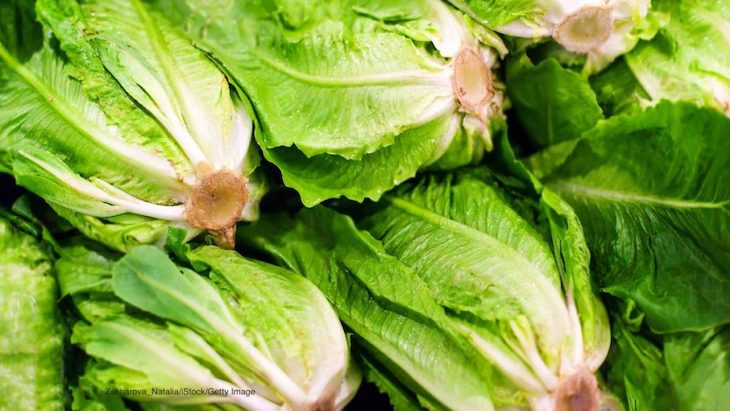Every year since 2017, there has been at least one E. coli O157:H7 outbreak linked to romaine lettuce or leafy greens in the United States and in Canada. While no such outbreak has been officially announced in the United States yet in 2020, there have been three “mystery” E. coli O157:H7 outbreaks announced by the CDC and FDA this fall that may be associated with romaine. No such outbreaks have occurred in Canada this year. Why?

It may be because last month the Canadian Food Inspection Agency (CFIA) imposed import restrictions on romaine lettuce grown in the United States. The romaine that allegedly caused illnesses in Canada mostly came from the Salinas growing region in California. So romaine importers either had to prove to the Canadian government that the lettuce did not originate in Salinas or provide certification that the lettuce had “below-detectable” levels of E. coli contamination.
The CFIA told one of our reporters, “Since mid-October 2020, the vast majority of shipments presented to the CFIA have been accompanied by the appropriate requirements, such as a certificate of analysis for E. coli O157. The CFIA is providing flexibility by allowing testing to be done once romaine lettuce products have entered into Canada. In this case, the imported product is placed on hold while undergoing testing and cannot be released to market unless the results come back negative for E. coli.
“The option of having shipments tested upon arrival in Canada is the importer’s responsibility; it is not CFIA that will conduct the testing. It must be done in a private accredited laboratory as per the guidance indicated on CFIA’s website for romaine lettuce from the USA.”
Meanwhile, romaine lettuce from Tanimura & Artle in the U.S. was recalled after a positive E. coli O157:H7 test. And that pathogen is “highly related genetically” to E. coli O157:H7 bacteria that has sickened two people in Michigan. But the CDC states that this evidence is not enough to link that romaine to an outbreak. That agency is still investigating to see if more products may be contaminated.

If you or a loved one have been sickened with an E coli O157:H7 infection, please contact our experienced attorneys for help at 1-888-377-8900 or 612-338-0202.




